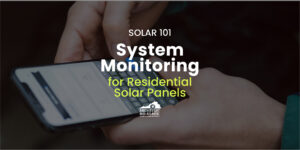Net Metering and State Differences
Net Metering and State Differences
Do you ever wonder how solar systems are able to produce energy for you to use in the middle of the night when the sun isn’t out? Here’s a hint: they don’t!
Because solar panels need sunlight to produce electricity, there are times where your system produces less energy than usual–or no energy at all. In winter, when the panels get less sun time throughout the day, they will produce a little less energy than they do in the summer. And in the middle of the night, when the sun is down, panels will not produce any energy at all.
Obviously, homeowners can’t just go without electricity whenever the sun isn’t out; you’d be in for some pretty dark nights! We make sure that you will always have the electricity you need by building your solar energy system to overproduce at high production times, like during the day or the summer. This ensures that you will have power stored to use at low production times, like at night or during winter.
Storing Energy with Net Metering
Net metering is a power storage option that allows homeowners to avoid expensive solar batteries by storing excess energy on the electrical grid. Any energy produced by your solar system that your home does not immediately use gets sent to the grid. Then in low production times, when your system is not able to produce the amount of energy your home needs, you will be able to use the energy you have stored on the grid for free. Your power meter runs both ways to keep track of how much excess energy you have stored and how much of your stored energy you consume.
Unlike solar batteries, net metering is free to homeowners, except for a small connectivity fee charged by your utility company. This is an excellent way to avoid high battery costs and reduce the overall cost of your solar energy system.
State Legislation and Incentives for Net Metering
Net metering legislation is determined by each state, which means the exact details look different depending on where you live. Most states offer, and even mandate, net metering, meaning that it is widely accessible across the US. Visit the Database of State Incentives for Renewables & Efficiency to see what incentives are available in your area.
Virginia is a very motivated state regarding clean energy production, and has some specific incentives in place regarding net metering. Virginia requires Dominion and Appalachian Power, as well as their subsidiaries, to offer net metering to state residents. These companies also compensate homeowners for unused excess electricity at the end of the year at a one to one retail rate, which means you can get free money from your utility company for any energy you produce over the year that you do not use.
Choosing Your Energy Storage Method
Net metering is an excellent option for homeowners who want to lower the cost of their solar energy system. It provides an easy way to cut a chunk out of your overall system cost while still operating just as effectively. Plus, if you end up with unused energy still stored on the grid at the end of the year, you’ll make some extra money!
While net metering on its own is an excellent option, we are also able to provide you with a solar battery that works hand in hand with net metering. With a battery system, your solar panels will first send any excess energy to your battery. Once the battery is full, the rest of your excess energy will be stored on the grid. This option provides you with power from your battery even during power outages, but is more expensive than just using net metering for all of your storage.
We want to make sure that you are storing your power in whatever way is most convenient and beneficial for you. If you are considering going solar, make sure that you look into the specific regulations in your state to see if net metering is a good option for your system.
Do you want to learn more about solar? Subscribe to our Solar 101 blog series by entering your email address below, or click the link to view our corresponding Solar 101 videos!








